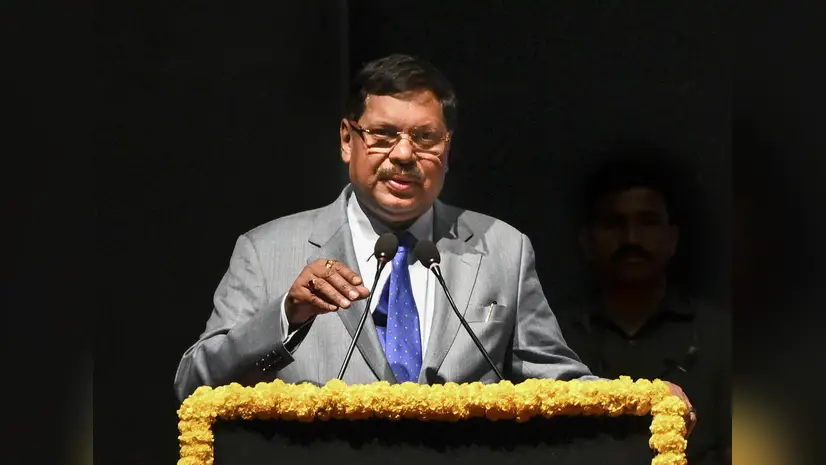- Courses
- GS Full Course 1 Year
- GS Full Course 2 Year
- GS Full Course 3 Year
- GS Full Course Till Selection
- Answer Alpha: Mains 2025 Mentorship
- MEP (Mains Enrichment Programme) Data, Facts
- Essay Target – 150+ Marks
- Online Program
- GS Recorded Course
- Polity
- Geography
- Economy
- Ancient, Medieval and Art & Culture AMAC
- Modern India, Post Independence & World History
- Environment
- Governance
- Science & Technology
- International Relations and Internal Security
- Disaster Management
- Ethics
- NCERT Current Affairs
- Indian Society and Social Issue
- NCERT- Science and Technology
- NCERT - Geography
- NCERT - Ancient History
- NCERT- World History
- NCERT Modern History
- CSAT
- 5 LAYERED ARJUNA Mentorship
- Public Administration Optional
- ABOUT US
- OUR TOPPERS
- TEST SERIES
- FREE STUDY MATERIAL
- VIDEOS
- CONTACT US
BioE3 Policy: Achieve $300 Billion Bioeconomy by 2030
BioE3 Policy: Achieve $300 Billion Bioeconomy by 2030
23-09-2024
- In August 2024, The Union Cabinet has approved the BioE3 (Biotechnology for Economy, Environment and Employment) Policy with an ambitious aim to foster high-performance biomanufacturing.
- This move is expected to steer India towards accelerated green growth and establish it as a global leader in the bioeconomy.
Key Points of the BioE3 Policy
- Ambitious Target: The policy envisions India's bioeconomy reaching a staggering US $300 billion by 2030, building on the impressive growth from US $10 billion in 2014 to over US $130 billion in 2024.
- Green Growth: It seeks to propel India towards 'Green Growth' by fostering a 'Circular Bioeconomy' that focuses on sustainable use and conservation of biological resources.
- Implementation: The Department of Biotechnology (DBT) will be responsible for implementing the policy.
- Focus Areas: The policy will prioritize 6 key sectors:
- Bio-based chemicals and enzymes
- Functional foods and smart proteins
- Precision biotherapeutics
- Climate-resilient agriculture
- Carbon capture and utilization
- Futuristic marine and space research
-
Key Initiatives:
- Bio-AI Hubs: Integrating AI with biological data to accelerate research and innovation.
- Biomanufacturing Hubs: Providing shared facilities for researchers, startups, and SMEs to support early-stage manufacturing.
- Regulations and Global Standards: Ensuring seamless integration of biosafety and biosecurity considerations.
- Data Governance Framework: Enabling open access to scientific discoveries while protecting intellectual property.
Need for the BioE3 Policy
The BioE3 policy addresses critical challenges faced by India:
- Sustainability: Driving innovation in biotransformation for sustainable production of high-value chemicals and biopolymers.
- Nutrition: Ensuring adequate and nutritional food intake for India's growing population.
- Healthcare: Intensifying India's engagement in futuristic biotherapeutics and personalized medicine.
- Food Security: Promoting soil microbiome-based research for climate-smart agriculture.
- Climate Change: Facilitating decarbonization through microbial conversion of CO2.
- Space Exploration: Developing sustainable food solutions for long-duration space missions.
- Skill Development: Addressing skill gaps in cutting-edge areas of biotechnology through bio-hubs.
Other Initiatives to Boost Bio-Economy in India
The BioE3 policy is complemented by several other national initiatives aimed at strengthening India's bioeconomy:
- National Mission on Bioeconomy, 2016: Launched by the Institute of Bio-resources and Sustainable Development (IBSD), this mission focuses on boosting the rural economy through the effective utilization of bio-resources.
- National BioPharma Mission, 2017: This industry-academia collaborative mission seeks to accelerate biopharmaceutical development in India.
- National Biotechnology Development Strategy 2015-2020: This strategy envisions establishing India as a world-class bio-manufacturing hub.
- National Policy on Biofuels, 2018: This policy promotes the production of biofuels from domestic feedstock, integrating them into the value chain as green energy.
Way Forward
To realize the full potential of the BioE3 policy, India needs to:
- Embrace Circular Bioeconomy: Adopt principles of reuse, repair, and recycle to minimize waste and environmental impact.
- Support Startups: Invest in startups to facilitate their transition into large-scale manufacturing, drawing inspiration from successful models like the USA.
- Streamline Processes: Implement a single-window clearance system for Biomanufacturers.
- Retain Talent: Focus on retaining STEM talent within India.
- Foster International Collaboration: Collaborate with other nations to create a robust global framework for biomanufacturing.
The BioE3 policy marks a significant step towards a greener and more sustainable future for India. By fostering innovation and promoting sustainable practices, it has the potential to transform India's economy and contribute to global efforts to address climate change and other pressing challenges.




